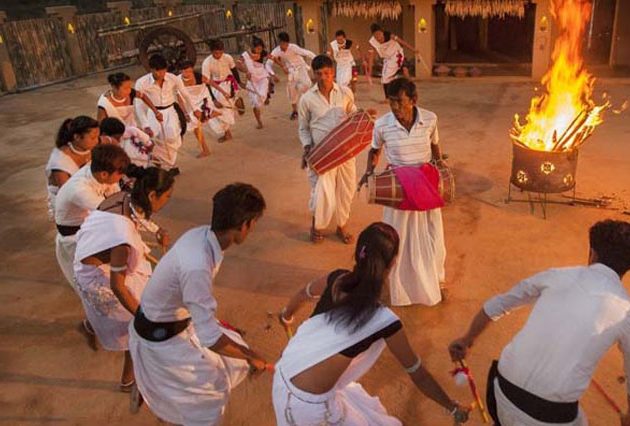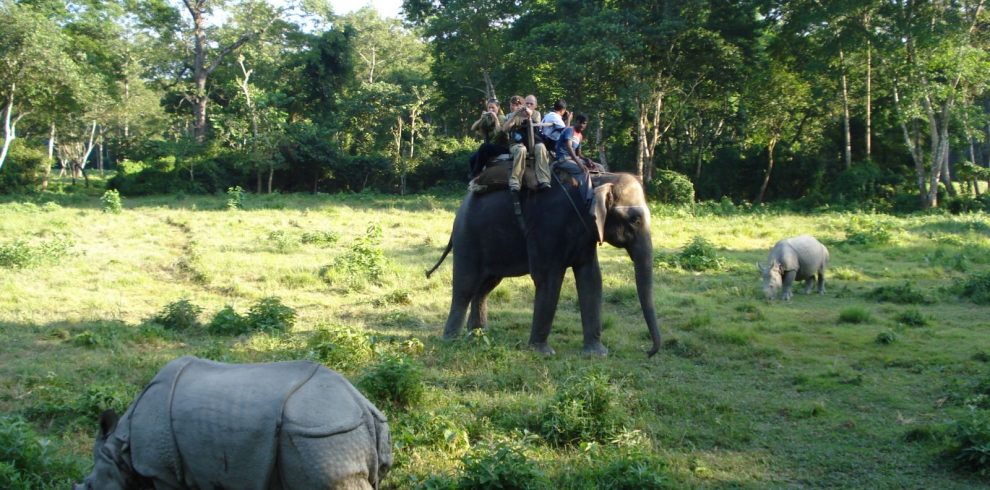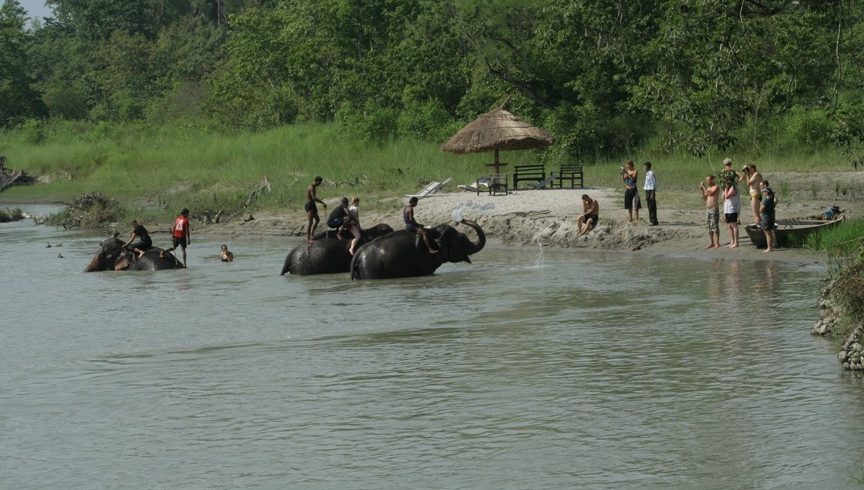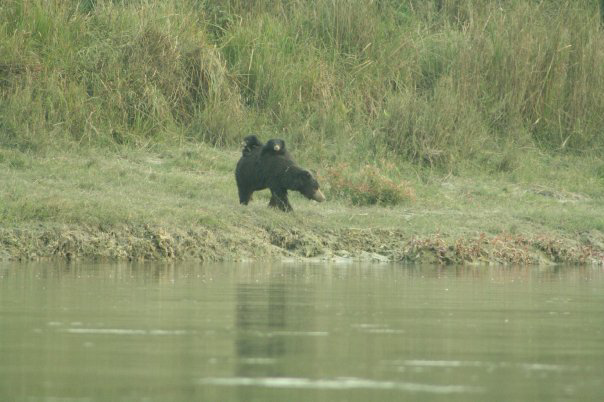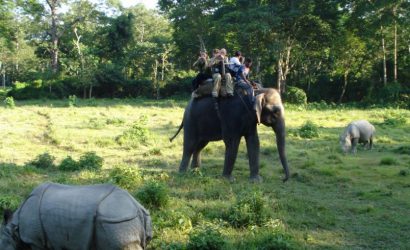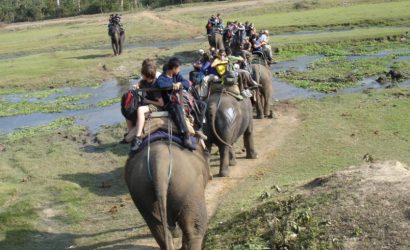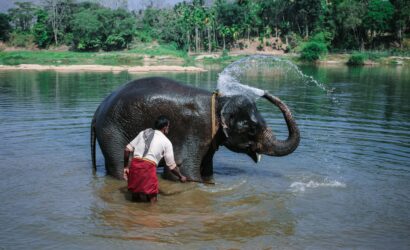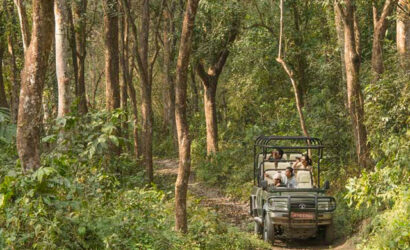Chitwan Pokhara Sightseeing Trip overview
| Trip Duration: | 4 Days |
|---|---|
| Trip Type: | Tea House |
| Activities: | Sight-Seeing |
| Difficulty: | Easy |
| Max. Altitude: | 1740m |
| Best Season: | All Year Round |
| Group Size: | 1+ |
| Transportation: | Private Car |
| Accommodation: | Guest House |
| Meals | All meals during the trip (Typical Nepali and Ethnic foods) |
Chitwan and Pokhara are the most famous tourist destinations in Nepal for sightseeing. Chitwan National park is one of the finest National parks in Asia which provides the opportunity to see animals in their rightful habitat. It is known as the heart of the Jungle. The main attraction here is the Royal Chitwan National Park. Royal Chitwan National Park is the home to more than 500 Asian one-horned rhinoceros and Royal Bengal Tigers. The park is also the home to around 600 plant species, 50 mammals, 526 birds, and 49 amphibians and reptiles.
For jungle safari, Royal Chitwan National park is famous. Here you will travel through open grassland and dense forest on elephant back and while doing this you will come across different wild animals including rhinos, different kind of deer’s, wild boars, and in rare cases, tigers. Chitwan is accessed on any trip to or from Kathmandu to Pokhara, or from the end of a rafting journey on the Trisuli River.
Chitwan Pokhara sightseeing Trip Highlights
- Explore the Chitwan National Park
- Elephant Safari
- Jeep Drive
- Elephant Herd
- Observe more than 500 Asian one-horned rhinoceros and Royal Bengal Tigers
- Discover the unique tradition and culture of Tharu people
- Boating/rafting in phewa lake
Day 01:
Pokhara or Kathmandu to Chitwan Arrival pickup from Bus Park. Lunch, village tour, Elephant breeding center, Cultural program, Dinner and rest
Day 02:
In Chitwan B/Fast Canoeing, Jungle walk, Lunch, Jeep drive Safari 4/5hrs Dinner and rest
Day 03:
In Chitwan Early wakeup and Bird watching, B/Fast and rest. Lunch and free time for recreation like swimming and tennis. Afternoon Elephant Safari. Dinner and cultural program.
Day 04:
Chitwan to Kathmandu or Pokhara Breakfast, prepare for departure for onward destination.
Price Includes
- Transportation to and from Kathmandu by air or road, as per itinerary.
- 3 meals per day during the trek (breakfast, lunch & dinner) including the coffee and tea.
- Accommodation in guest houses during the trip.
- Highly experienced Government licensed guide and necessary porters during the trek.
- Government / Local taxes, Tourist service charge, guide/porter insurance and salary, general equipment, national park and conservation area fees.
- Entry Fees
Price Excludes
- International airfares
- International Airport Departure Tax.
- Trekking Equipment
- Major meals, Lunch and dinner during your stay in Kathmandu
- Any type of personal expenses, such as alcoholic beverages and drinks, phone and laundry.
- Nepal entry visa fee US$ 30 (duration 60 days from date of issue) – you may easily obtain the visa upon your arrival at Tribhuvan International Airport –
- Kathmandu.
- Rescue & travel insurance, trip cancellation costs, accident or health emergency, evacuation, loss, theft or damage to baggage and personal effects. We strongly advise you to take out Personal Travel Insurance.
- Tips & Gratuities
Useful Information:
We will provide you with detailed information about the trekking, trekking trail etc for simplifying your expedition. Please do not hesitate to contact us if you require more information or have any queries we would be more than happy to provide you with all the information you are seeking from us.
When to go (Best Season to Travel)
September-November and March-May are the best season for the mostly trekking regions in Nepal. The weather during the season is sunny and warm during the day that offers you to enjoy the magnificent view of the Himalayan range whereas the nights are chilling and cold and can fall to freezing in the higher elevations. During the month of December-February is not ideal for trek due to the cold weather. Trekking during summer will be affected by rain but summer trek could be a boon of a keen botanist. The trekking routes are always busy with trekkers during September-November and March-May and the routes are not packed and crowded and you can have a great journey enjoying the scenic views in the months of December-February.
Travel Insurance:
Travel insurance is highly recommended for trekkers who plan their trekking in the Himalayas. Travel insurance is mandatory while going for trekking, hiking etc in Nepal. Please make sure that your insurance policy covers personal injury, medical expenses, repatriation expenses, helicopter rescue, loss of luggage, etc. We strongly recommend that your policy also covers personal liability, cancellation, curtailment and loss of luggage and personal effects. Please check with your insurance company that adventure activities and trekking above 3000m are covered by your policy. You must carry proof of insurance (i.e. your insurance certificate) with you during your expedition.
Meals and Accommodation:
We will arrange three or four star hotel for your accommodation (Upgradeable upon request) in Kathmandu. During the trek we provide the best available guest house which is called Tea house/Lodge. Tea Houses are like hotels that serve with hot showers, western foods and private rooms (twin sharing). Some guest houses are ordinary guest house with shared washing and toilet facilities and comparatively cheap in price. If you are traveling in a group, you will share a room with one of the group member with same sex. If you wish to stay single in a room then you have to let us know in advance and some surcharges are applicable in such case. Please be noted that there are several guest houses that do not allow a single accommodation during the peak season so sharing the room with somebody becomes a compulsion. We will arrange your dinner and early breakfast in the guest house itself but the lunches will be arranged in some restaurants en route. Your stay at a local guest house helps you to be more familiar with local culture and traditions. Pathfinder Expeditions is highly concerned about the standard of food and make sure that sufficient food is provided to our guest. A special menu will be offered so that you could choose the kind of food you like to eat. A cup of tea or coffee would be included in your meal menu. Our guide will always be there to assist you while choosing the food from the menu. The menu comes with comparatively high price due to the availability of food items and spices and extreme locations. Most of the tea houses serve you with delicious local cuisines along with international foods. You can get food items like biscuits, chocolates, cold drinks, soft drinks and seasonal fruits and veggies. Bottled water is always available in the tea house and restaurants or shops en route. You may ask your guide to fill the bottle with boiled water from the lodges and purify them with purification pills.
Fitness and Experience Required:
Most of the trekking required some walking experience and that suitable for passionate trekkers who have the ability to walk at least four to six hours a day. Some days you might even need to walk seven to eight hours. Walking in higher altitude is rather challenging and it requires a lot of physical caliber. A good physique, positive altitude, self confidence and strong determination are the keys to success to successfully accomplish for the trek. Prior preparation like walking or jogging few hours a day before starting your trek is beneficial and it simplifies your expedition. Past hiking experience would be an asset but not mandatory for any trekking. Participants with chronic illness, physical disorder, heart, blood and respiratory disease are strongly advised to inform Pathfinder Expeditions before booking the trek. Consultation with a medical professional is highly recommended before starting your trekking in Nepal Himalayas.
Trekking Group:
We allocate one guide, an assistant guide (6 trekkers: 1 assistant guide) and porters for carrying the luggage. We make sure that the trek expedition will still go ahead as planned if any of the group members falls sick. We operate the trekking for any group size but generally a largest group consists of sixteen people. We also make customized group size as per your requirement.
Trekking Guides and Staff:
Trekking guides and staff plays a vital role in making a trek a successful one. We allocate trained, experienced, courteous and expert guide and crew members for every trekking endeavor. The staff and guide we deploy during the trekking have the utmost ability of operating your days in the mountains. The team will be lead by the best and professional guide from the industry. Our guide and are carefully selected on the basis of their experience, expertise, guiding skills and aptitude. We deploy the guides and crew member who are familiar with the local culture and community and geographical distribution. Trekking guides of Pathfinder Expeditions are trained with the following trainings so that to enhance their potentials on medical issues, biodiversity, environmental issues and English language proficiency.
- Intensive Wilderness First Aid – KEEP (Kathmandu Environmental Educational Project)
- Trekking Guide Training – Nepal Government’s Ministry of Tourism & Civil Aviation department of Hotel Management and Tourism Training Centre of Nepal
- Eco Trekking Workshop and Adventure Meet TAAN (Trekking Agents Association of Nepal)
- English Language – KEEP(Kathmandu environment education project)
- Conservation and Biodiversity TAAN
- Rock, Ice Climbing and Mountaineering (Climbing leaders)
- Our guides and porters know the routes and trails and are well aware of local culture and traditions.
- Nepal Mountaineering Association Our trekking guides speak English (Some may have the potentials to speak other foreign language like French, Spanish etc) adequate enough for the smooth communication but please consider that English is not our mother tongue.
Acclimatization:
Pathfinder Expeditions is planned with high degree of awareness about Acute Mountain Sickness (AMS). Trekking in the higher altitude too fast might cause a medical condition serious enough to cause death. The level of oxygen fluctuates as the height increases. For example, at an altitude above 5000m, there is 50% less oxygen than at sea level. Our body requires many days to adapt the less-oxygen environment so the itinerary should be planned accordingly. Our itinerary is planned in such a way that it provides sufficient time for acclimatization. Sensible trek plan is therefore very crucial to minimize the risk of AMS. Pathfinder Expeditions highly advises specially the guests with known heart, blood or respiratory diseases to consult their medical professional before traveling. Mild headaches, fever, loss of appetite or stomach disorder are symptoms of AMS. Our leaders are well trained to administer the AMS. Pathfinder Expeditions’ itineraries are designed to avert the risk of AMS as much as possible.
Safety and Security:
We do not compromise on safety and security of our guests. We highly prioritize safety and security measures during the trek. We have to understand that there are certain risks while traveling in higher altitude which you should consider before booking. Our trip operators constantly monitor their areas of operation and trekking trail and they would cancel or re-route a trip if they feel any destination is unsafe to travel.
Foreign Travel:
When traveling to a foreign country you need to do a bit of research beforehand. You should consult your G.P. or travel doctor to find out if you need any pre travel vaccinations. Your doctor cans also advice you on relevant medication to take and what will be available in the country you are traveling to. You should research the climate and conditions of the country you are traveling to and pack accordingly. It’s also important for you to be aware of the customs and religious beliefs of the local people. You should be aware of appropriate behavior and dress codes, not only is the respectful and responsible thing to do, but it could save you a lot of hassle and bother, especially for female travelers. Also if you are carrying medicine make sure you have the relevant prescriptions from your doctor. Drug trafficking is a major offence. You should never leave your bag unattended at any shipping port. Also you should familiarize yourself with the drug laws and regulations of the country you are traveling to. To make best your travel plans it is important for you to be aware of what to expect in the country you are traveling in. A little bit of education and knowledge goes a long way in making your holiday a successful and enjoyable affair. Pre researching your trip will take a lot of stress out of your travel.
Passport:
Of course for travel you need a current passport; your passport should be valid for at least six months from the date of your departure. Trying to renew your passport overseas can be a very difficult task and in fact most countries will not issue visa in passports that are about to expire. Also you should check vise requirements for the countries you are traveling; in some cases you can not get visas on arrival. As a guideline here is some information on visa relevant to this area. Also check that your airline tickets are in exactly the same name as your passport. Some countries may require that you have a return air ticket, or have sufficient funds to purchase such a ticket.
Visas:
Australians, Americans, British and Canadians currently require a visa for. For all other nationalities please reconfirm your visa requirements with your travel agent. We strongly recommend you apply for your visa prior to arrival in (there are consulates in many countries), although you can obtain a visa on arrival at Kathmandu Airport for $US30 for a Single Entry, and $US45 for a Double Entry. You must have US Dollars cash to the exact amount and one passport photo. Expect some delays in processing the visa application at the airport. Passengers then traveling to or (these trips start and finish in ) should obtain a Double Entry Nepal visa.
Travel Insurance:
Travel insurance is highly recommended and is in fact compulsory should you be going trekking, rafting, paragliding etc. We require that, at a minimum, you are covered for medical expenses including emergency evacuation. Participants without adequate insurance cover will be asked to arrange cover immediately before commencing their holiday – this can be very difficult and expensive to arrange locally We strongly recommend that the policy also covers personal liability, cancellation, curtailment and loss of luggage and personal effects. Please check with your insurance company that adventure activities and trekking above 3000 m are covered in your policy, as some companies do not cover such things. For Every Adventure trips your policy must cover evacuation by helicopter and repatriation. In the event of emergency evacuation, you are liable to the helicopter operating company and to Pathfinder Expeditions for both the helicopter operating company’s direct costs – which can amount to thousands of U.S. dollars – and also to Pathfinder Expeditions for an additional amount of 10 per cent, to cover Pathfinder Expeditions’ costs for organizing the evacuation. Passengers requiring emergency evacuation will be billed for the cost and required to pay prior to departing Kathmandu or the relevant point of exit. (You will need to take out additional higher risk coverage for Mountaineering and Expedition. )
Vaccinations::
As with traveling to any Asian country there are several precautions you should take before you depart on your trip. The below is only suggested precautions that you should take, we like to recommend that you consult with your travel doctor before you go traveling. The following vaccinations are advisable, but depend on the area that you are traveling and your length of stay.
- Typhoid
- Polio
- Tetanus
- Gamma Globulin or Havrix (against Hepatitis A)
- Hepatitis B
- Smallpox
Important Stuff:
When traveling of course you needs your passport and relevant visa. You should also make copies of these, one to bring with you and one to leave with family or friends. Keep these separate from your passport. Other things you should have copies of are insurance policy, birth certificate, a record of bank details and traveler’s cheque details. You should also have contact numbers for your bank and insurance company and your travel agent/ flight booking office.
Walking times:
This itinerary is intended as a guide only. Local conditions and weather may necessitate variations to the program and can affect the availability of views and panoramas described. Be aware that all times stated are approximate and may vary with individual and group fitness, weather and track conditions.
Health and Medicine
Heath is the most important fact that we have to take conscious about it. There are no specific health requirements for your trip, though we recommend a good fitness level so you get the most enjoyment out of your holiday. You should consult your doctor for up-to-date medical travel information about before you depart for your trip, they can inform you about vaccinations and things you may need to be aware of. We recommend that you carry a First Aid kit as well as any personal medical requirements. Please be aware that you may be in remote areas and away from medical facilities for some time during this trip, and for legal reasons our guides are prohibited from administering any type of drug including headache tablets, antibiotics, etc. Also you should make yourself familiar with altitude sickness if you are trekking above 3000m.
Environmental Issues:
For the good of us all that live on this planet, the protection and conservation of the environment is the most important thing. When traveling and trekking in, you will at times be entering environmentally sensitive areas. We put environmental issues first, all of our treks and tours are arranged to give minimum impact to the environment. We encourage our guests to carry out litter and not use plastic water bottles. We also don’t use wood fires at our camp sites and also try not to use tea houses which do so, we prefer to stay in places that use gas and solar power. It’s the small things that we all do that can help to preserve the environment for the future generations of trekkers.
Traveling responsibly:
We arrange all of our tours and treks to be sensitive to the environment and the local culture. We believe that it is very important when traveling to respect the customs and culture of the local people as well as preserve the environment for the future of tourism and our own good. We implement responsible travel by employing local guides and porters, supplying proper equipment, rightful wages and insurance for all our staff, promoting local awareness and respecting the privacy, culture and customs of the people who live in the areas that we are traveling. We do not encourage begging or that our clients give money to local children, instead we support schools and health centers in local communities and our clients can donate accordingly should they wish. We also look after the environment, while trekking we take out all our rubbish, we don’t encourage the use of plastic bottles, we use gas instead of fire wood and we provided adequate warm clothing and blankets so that we don’t need to use excess fuel for heating.

